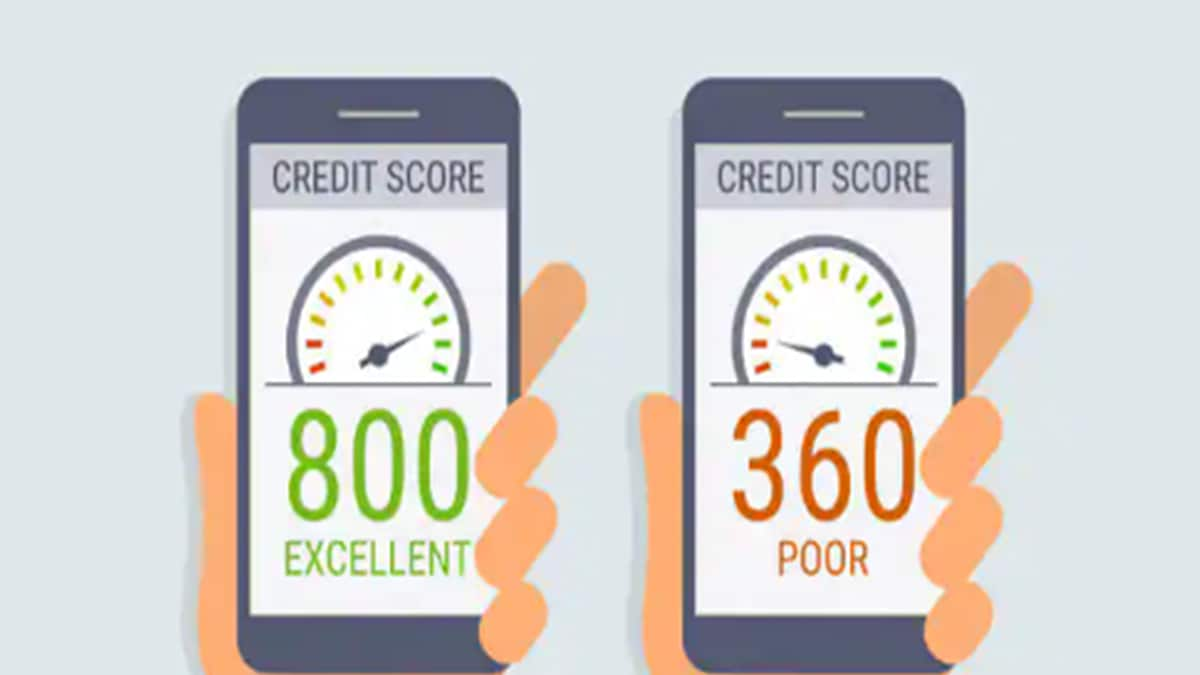In India, a credit score serves as a vital gateway to accessing affordable loans and financial products. This numerical representation of your creditworthiness can significantly influence your ability to secure loans at favorable interest rates. A good credit score, generally above 750, indicates a low risk to lenders, opening doors to competitive loan offers. Conversely, a poor credit score, often below 650, signals higher risk, potentially leading to loan rejection, exorbitant interest rates, or restricted loan options. Let’s explore how your credit score impacts the accessibility of cheaper loans in the Indian financial landscape:
The Role of Credit Score in Loan Approval
Lenders, including banks and NBFCs, heavily rely on credit scores to evaluate potential borrowers’ financial responsibility. They utilize credit scores to assess the likelihood of borrowers repaying their loans on time and in full.
Understanding Credit Score Ranges
Credit scores in India typically fall between 300 and 900, with higher scores signifying better creditworthiness. Scores above 750 are generally considered excellent, demonstrating a consistent history of responsible borrowing and repayments. Conversely, scores below 650 raise red flags for lenders, signaling potential risk factors such as missed payments or defaults.
Impact of Low Credit Score
When a credit score falls below a certain threshold, it can significantly hinder access to affordable loans.
-
Loan Application Rejection: Lenders might outright reject loan applications from individuals with poor credit scores, deeming them high-risk borrowers.
-
Higher Interest Rates: Even if a loan is approved, lenders may charge a higher interest rate for individuals with low credit scores. This reflects the perceived increased risk associated with lending to these borrowers.
-
Limited Loan Options: Borrowers with poor credit scores may face a limited selection of loan products, potentially being restricted to NBFCs or private lenders who typically offer higher interest rates.
Higher Interest Rates and The Cost of Borrowing
Lenders in India frequently differentiate interest rates based on a borrower’s credit score. This means individuals with excellent credit scores (750 and above) are often eligible for the most competitive loan rates, while those with poor scores (650 or below) might face significantly higher rates.
Illustrative Example
Consider a scenario where two individuals, Amit and Rahul, are applying for a Rs 50 lakh home loan. Amit, with a credit score of 800, secures an interest rate of 8.25%, while Rahul, having a credit score of 620, is offered a rate of 9.5%. The seemingly small 1.25% difference in interest rate can result in a substantial discrepancy in total interest paid over the loan tenure.
Impact of Missed Payments and Defaults
Missed payments, loan defaults, or reaching maximum credit limits can severely damage your credit score. These negative marks on your CIBIL score, a prominent credit bureau in India, escalate the risk perceived by lenders, subsequently impacting your ability to secure cheaper loans.
The Consequences of Negative Marks
-
Increased Loan Costs: A history of missed payments or defaults can lead to significantly higher interest rates and stringent loan terms, significantly increasing the cost of borrowing.
-
Restricted Access to Loans: Persistent defaults may result in lenders refusing to offer loans, effectively shutting down access to much-needed financing.
Negotiating Power and Affordable Loan Terms
A robust credit score empowers you to negotiate better loan terms and secure cheaper rates. Conversely, a low credit score weakens your negotiation position, leading to less favorable terms imposed by lenders, ultimately limiting your access to affordable loans.
Leveraging a High Credit Score
-
Negotiation Strength: A high credit score empowers borrowers to negotiate favorable interest rates and flexible loan repayment options, ultimately securing more affordable borrowing terms.
-
Access to Prime Loan Products: A strong credit score opens doors to attractive loan offerings from reputable lenders, including government-backed schemes and loan options with lower interest rates.
Takeaways:
-
Maintaining a healthy credit score is vital in India to access affordable loans.
-
A good credit score signifies trustworthiness and allows you to secure cheaper loan terms.
-
Late payments, defaults, and reaching maximum credit limits can damage your credit score, leading to higher borrowing costs.
-
Taking steps to improve your credit score can open doors to financial stability and access to more advantageous loans.




